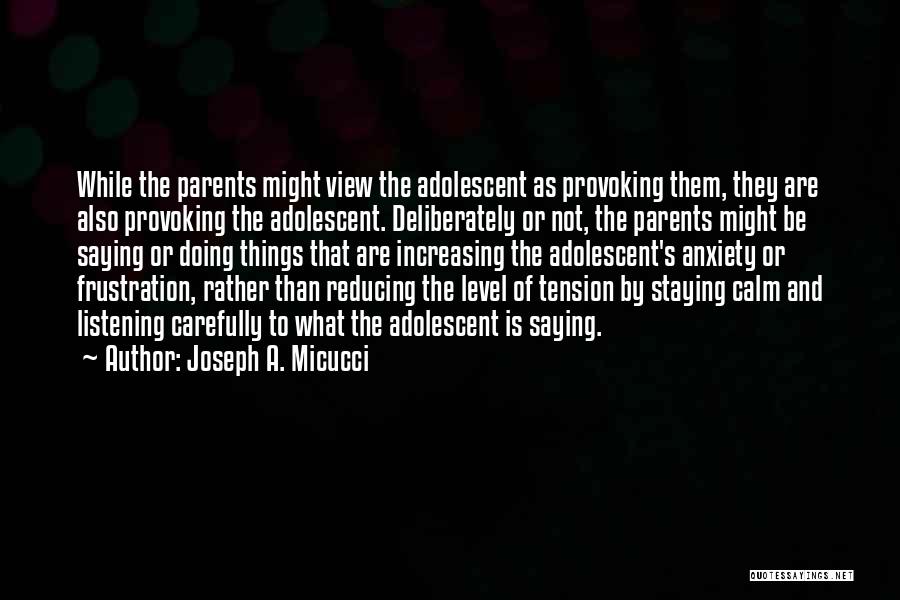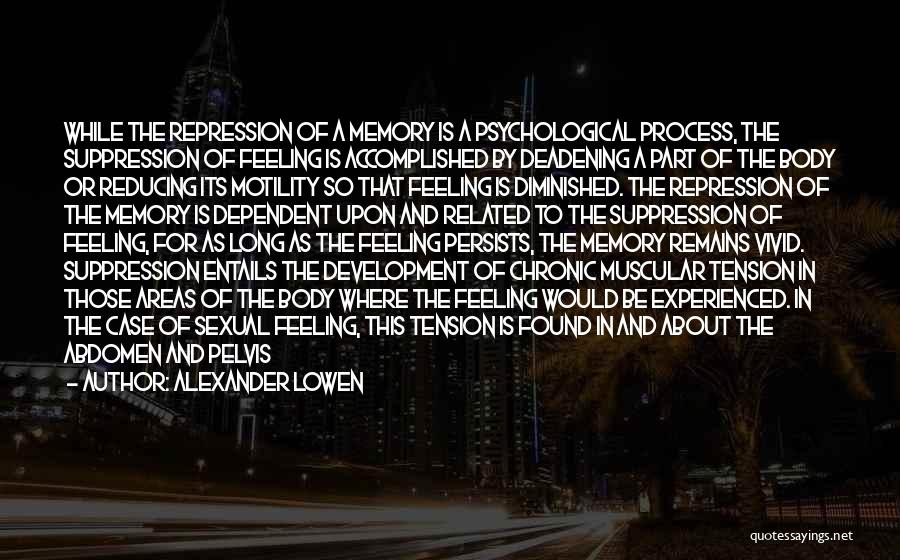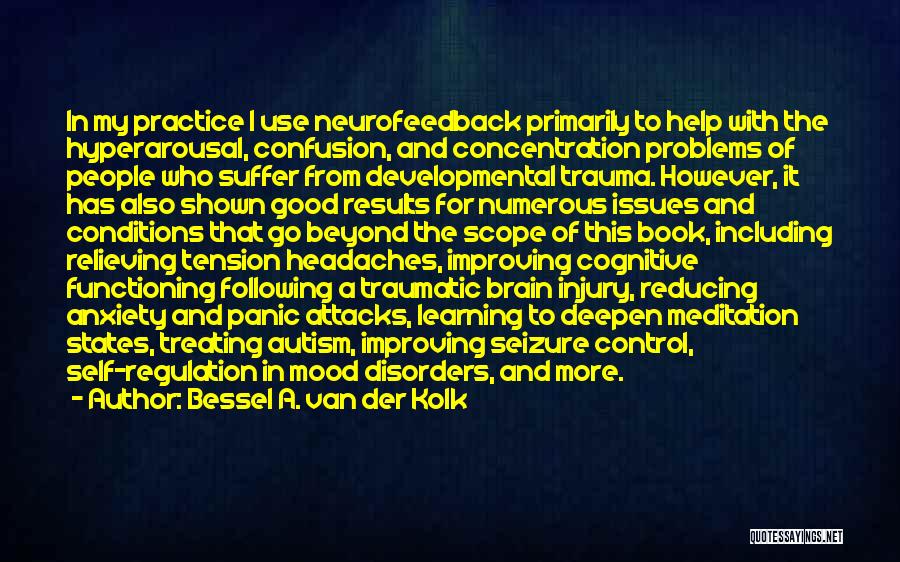Tension Reducing Quotes & Sayings
Enjoy reading and share 4 famous quotes about Tension Reducing with everyone.
Top Tension Reducing Quotes

While the parents might view the adolescent as provoking them, they are also provoking the adolescent. Deliberately or not, the parents might be saying or doing things that are increasing the adolescent's anxiety or frustration, rather than reducing the level of tension by staying calm and listening carefully to what the adolescent is saying. — Joseph A. Micucci

While the repression of a memory is a psychological process, the suppression of feeling is accomplished by deadening a part of the body or reducing its motility so that feeling is diminished. The repression of the memory is dependent upon and related to the suppression of feeling, for as long as the feeling persists, the memory remains vivid. Suppression entails the development of chronic muscular tension in those areas of the body where the feeling would be experienced. In the case of sexual feeling, this tension is found in and about the abdomen and pelvis — Alexander Lowen

Once [your romantic leads] have kissed, you don't get any pay-off from a second kiss. In fact, you risk reducing the tension. Every step forward has to up the stakes. But if the stakes go too high too early, it becomes a tension arms race. Escalate too soon and you've got all-out nuclear war in chapter four and scorched romantic earth for the rest of the story — C.S. Pacat

In my practice I use neurofeedback primarily to help with the hyperarousal, confusion, and concentration problems of people who suffer from developmental trauma. However, it has also shown good results for numerous issues and conditions that go beyond the scope of this book, including relieving tension headaches, improving cognitive functioning following a traumatic brain injury, reducing anxiety and panic attacks, learning to deepen meditation states, treating autism, improving seizure control, self-regulation in mood disorders, and more. — Bessel A. Van Der Kolk





